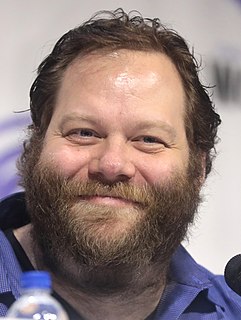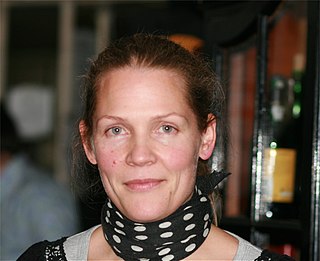A Quote by Jean Rhys
before I could read, almost a baby, I imagined that God, this strange thing or person I heard about, was a book.
Related Quotes
As a historically voracious reader - pre-baby, I averaged a book every week or two, and when I was a kid, I'd routinely read a book a day - I never understood how some people could not read. When I heard people say they didn't have time to read, in my head, I simultaneously pitied and ridiculed them: there was always time to read.
The funny thing is, nationalism only could have come about in Europe after the invention of printing. You could have this thing that was a book in a vernacular language, and you could imagine there were other readers of this book who you couldn't see, but they were a theoretical union of readers who all use the same language. That is kind of a prerequisite for a national fantasy. You need that thing, and it's a strange thing.
I heard about the book and I said, 'Oh my god, I've got to read this book,' and I didn't know that a white woman wrote it. Nobody said that to me, they just said, 'The Help - Oh my god, you've got to read it.' Everyone failed to mention it was a white woman, I think, because nobody really wants to talk about race.
I really knew almost nothing about Silicon Valley. I read that Steve Jobs book and watched a bunch of documentaries, and read the book about Mark Zuckerberg. I tried to learn some stuff, but there are consultants on the Silicon Valley show that know so much about it where you can get answers. To me, it's more important to get the particulars about that type of person as opposed to the specifics of the technology world.
Reading was like an addiction; I read while I ate, on the train, in bed until late at night, in school, where I'd keep the book hidden so I could read during class. Before long I bought a small stereo and spent all my time in my room, listening to jazz records. But I had almost no desire to talk to anyone about the experience I gained through books and music. I felt happy just being me and no one else. In that sense I could be called a stack-up loner.
But my body was telling its story. I have read a lot of stuff about cancer. I needed this book. I wish I'd had this book when I had cancer. I wanted someone to be talking to me about "fart floors." I wanted somebody telling me what it was like to have a colostomy bag. I felt so alone. And if you're a person who's been traumatized by past abuse, it's so potentially re-traumatizing. You slip right into "oh my god, this is the only person this has happened to before" mentality: "I'm especially bad and I have especially bad cancer..."
I was raised pretty much a fundamentalist, but the one thing that fundamentalism gave to me was the love for that book and a commitment to read and study it. The difficulty is that I've read it all, I didn't skip around, I read it all, and when you read it all, you can't take it literally because you don't want to blame God for a lot of stuff that occurs in that book. There are some pretty violent scenes.
It's not about you, it's about the next person. The single best use of a business book is to help someone else. Sharing what you read, handing the book to a person who needs it... pushing those around you to get in sync and to take action-that's the main reason it's a book, not a video or a seminar. A book is a souvenir and a container and a motivator and an easily leveraged tool. Hoarding books makes them worth less, not more.
Some people spend their entire lives thinking about one particular famous person. They pick one person who's famous, and they dwell on him or her. They devote almost their entire consciousness to thinking about this person they've never even met, or maybe met once. If you ask any famous person about the kind of mail they get, you'll find that almost every one of them has at least one person who's obsessed with them and writes constantly. It feels so strange to think that someone is spending their whole time thinking about you.






































